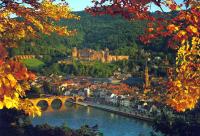Ultracold dynamics far from equilibrium
Ultracold atomic quantum gases belong to the most exciting challenges of modern physics. At temperatures below one Microkelvin, gases of bosonic atoms, i.e., such with an integer angular momentum quantum number, can contain a "Bose-Einstein condensate" in which essentially all atoms are in the same state. Today, the theory of ultracold atomic gases is characterized by (semi-)classical field equations [1,2]. These "mean-field" approximations are in general reliable for dilute gases, i.e., they presuppose that the gas atoms sufficiently rarely collide with each other. This is often equivalent to the condition that the gas is not too far from thermal equilibrium. The further the gas is driven or initially assumed to be away from equilibrium and the stronger the interactions between the atoms are, the shorter is the time over which semiclassical methods apply. In the lecture, an introduction to these mean-field theories will be given as well as to functional integral techniques [3] for the description of non-equilibrium atomic quantum gases [4,5,6]. Making these methods accessible to experimental precision verification has important potential impact on other areas like heavy-ion collisions or cosmology, where non-equilibrium methods are needed and much more difficult to be checked experimentally.
References:
[1] F. Dalfovo, S. Giorgini, L. P. Pitaevskii, and S. Stringari, Rev. Mod. Phys. [71], 463 (1999).
[2] J. O. Andersen, Rev. Mod. Phys. [76], 599 (2004).
[3] J. M. Cornwall, R. Jackiw, and E. Tomboulis, Phys. Rev. D [10], 2428 (1974).
[4] J. Berges, Nucl. Phys. [A699], 847 (2002).
[5] G. Aarts, D. Ahrensmeier, R. Baier, J. Berges, and J. Serreau, Phys. Rev. D [66], 045008 (Aug. 2002).
[6] T. Gasenzer, J. Berges, M. G. Schmidt, and M. Seco, Phys. Rev. A [72], 063604 (2005).

